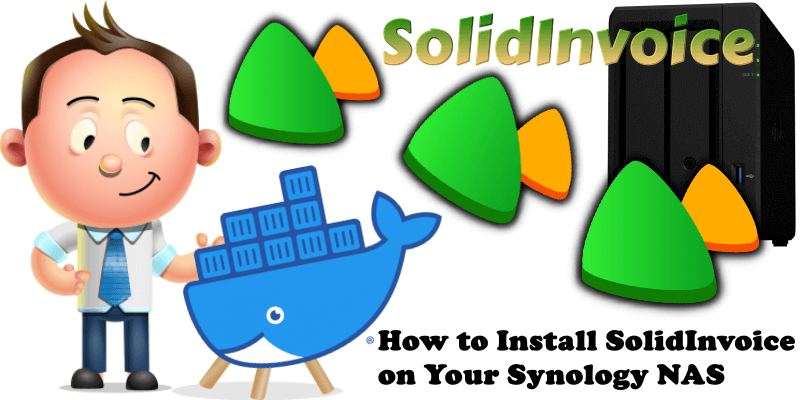
SolidInvoice is a simple, open source invoicing application aimed to help small businesses and freelancers manage their day-to-day billing. It’s a feature rich, elegant online application, available as a cloud solution to ensure that you can always get paid on time. In this step by step guide I will show you how to install Solidinvoice on your Synology NAS using Docker & Portainer.
This guide works perfectly with the latest Solidinvoice 2.3.14 release.
STEP 1
Please Support My work by Making a Donation.
STEP 2
Install Portainer using my step by step guide. If you already have Portainer installed on your Synology NAS, skip this STEP. Attention: Make sure you have installed the latest Portainer version.
STEP 3
Make sure you have a synology.me Wildcard Certificate. Follow my guide to get a Wildcard Certificate. If you already have a synology.me Wildcard certificate, skip this STEP.
STEP 4
Go to Control Panel / Login Portal / Advanced Tab / click Reverse Proxy. Follow the instructions in the image below.
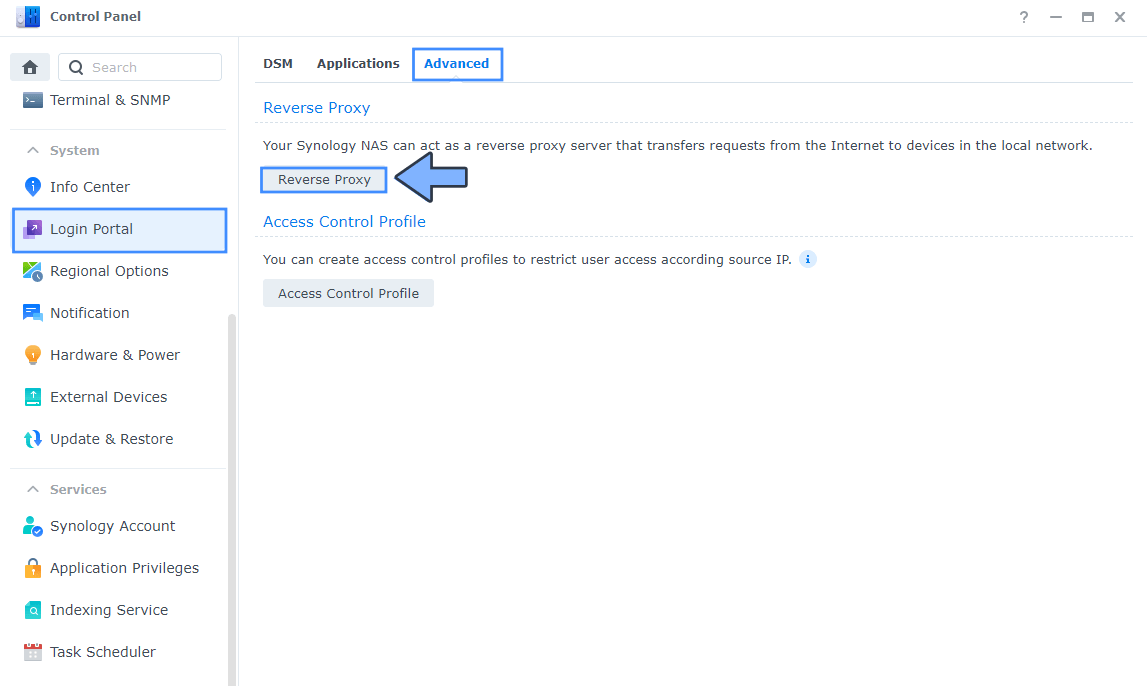
STEP 5
Now click the “Create” button. Follow the instructions in the image below.
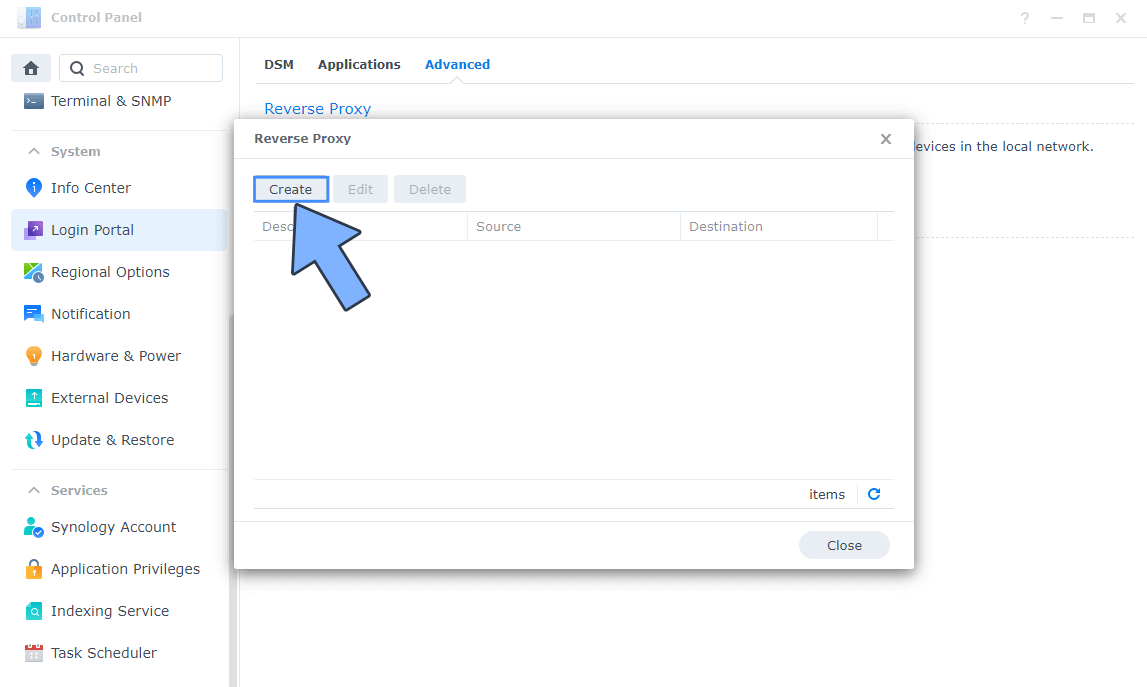
STEP 6
After you click the Create button, the window below will open. Follow the instructions in the image below.
On the General area, set the Reverse Proxy Name description: type in Solidinvoice. After that, add the following instructions:
Source:
Protocol: HTTPS
Hostname: solidinvoice.yourname.synology.me
Port: 443
Check Enable HSTS
Destination:
Protocol: HTTP
Hostname: localhost
Port: 5484
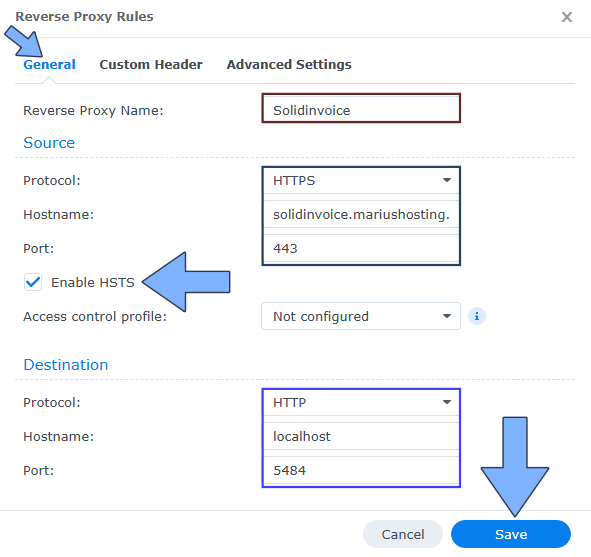
STEP 7
On the Reverse Proxy Rules, click the Custom Header tab. Click Create and then, from the drop-down menu, click WebSocket. After you click on WebSocket, two Header Names and two Values will be automatically added. Click Save. Follow the instructions in the image below.

STEP 8
Go to Control Panel / Network / Connectivity tab/ Check Enable HTTP/2 then click Apply. Follow the instructions in the image below.
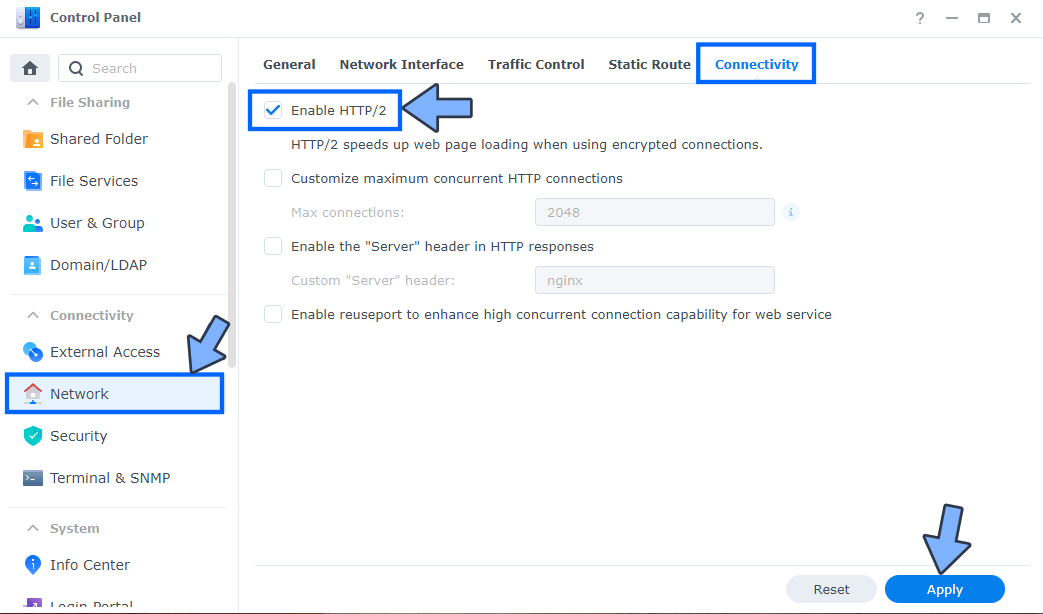
STEP 9
Go to Control Panel / Security / Advanced tab/ Check Enable HTTP Compression then click Apply. Follow the instructions in the image below.

STEP 10
Go to File Station and open the docker folder. Inside the docker folder, create one new folder and name it solidinvoice. Follow the instructions in the image below.
Note: Be careful to enter only lowercase, not uppercase letters.
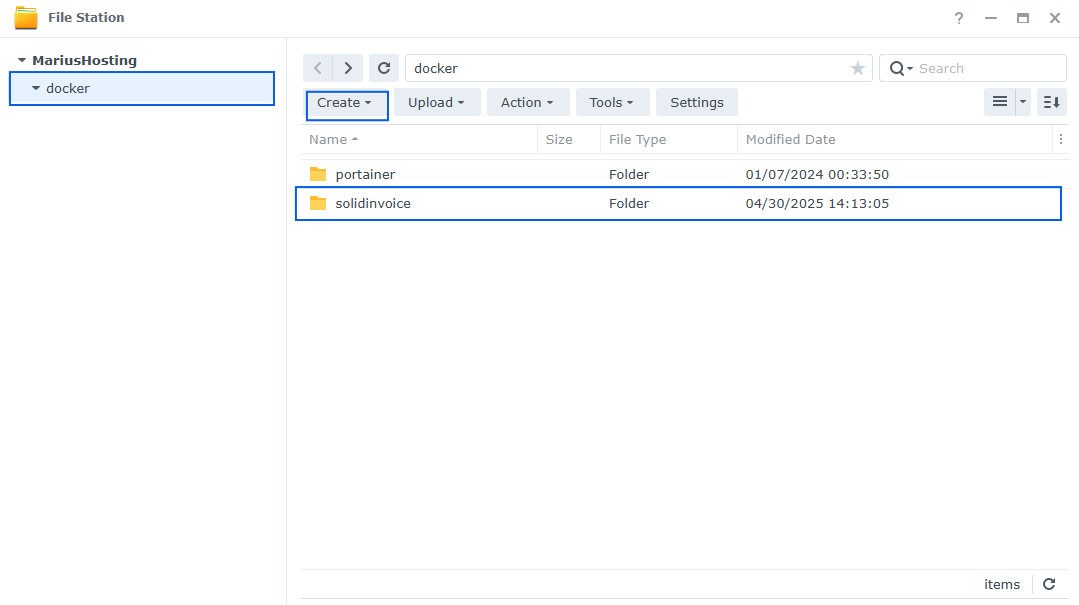
STEP 11
Log into Portainer using your username and password. On the left sidebar in Portainer, click on Home then Live connect. Follow the instructions in the image below.

On the left sidebar in Portainer, click on Stacks then + Add stack. Follow the instructions in the image below.

STEP 12
In the Name field type in solidinvoice. Follow the instructions in the image below.
services:
solidinvoice:
image: solidinvoice/solidinvoice:2.3.8
container_name: Solidinvoice
healthcheck:
test: ["CMD-SHELL", "nc -z 127.0.0.1 8765 || exit 1"]
interval: 10s
timeout: 5s
retries: 3
start_period: 90s
security_opt:
- no-new-privileges:true
volumes:
- /volume1/docker/solidinvoice:/etc/solidinvoice:rw
ports:
- 5484:8765
restart: on-failure:5
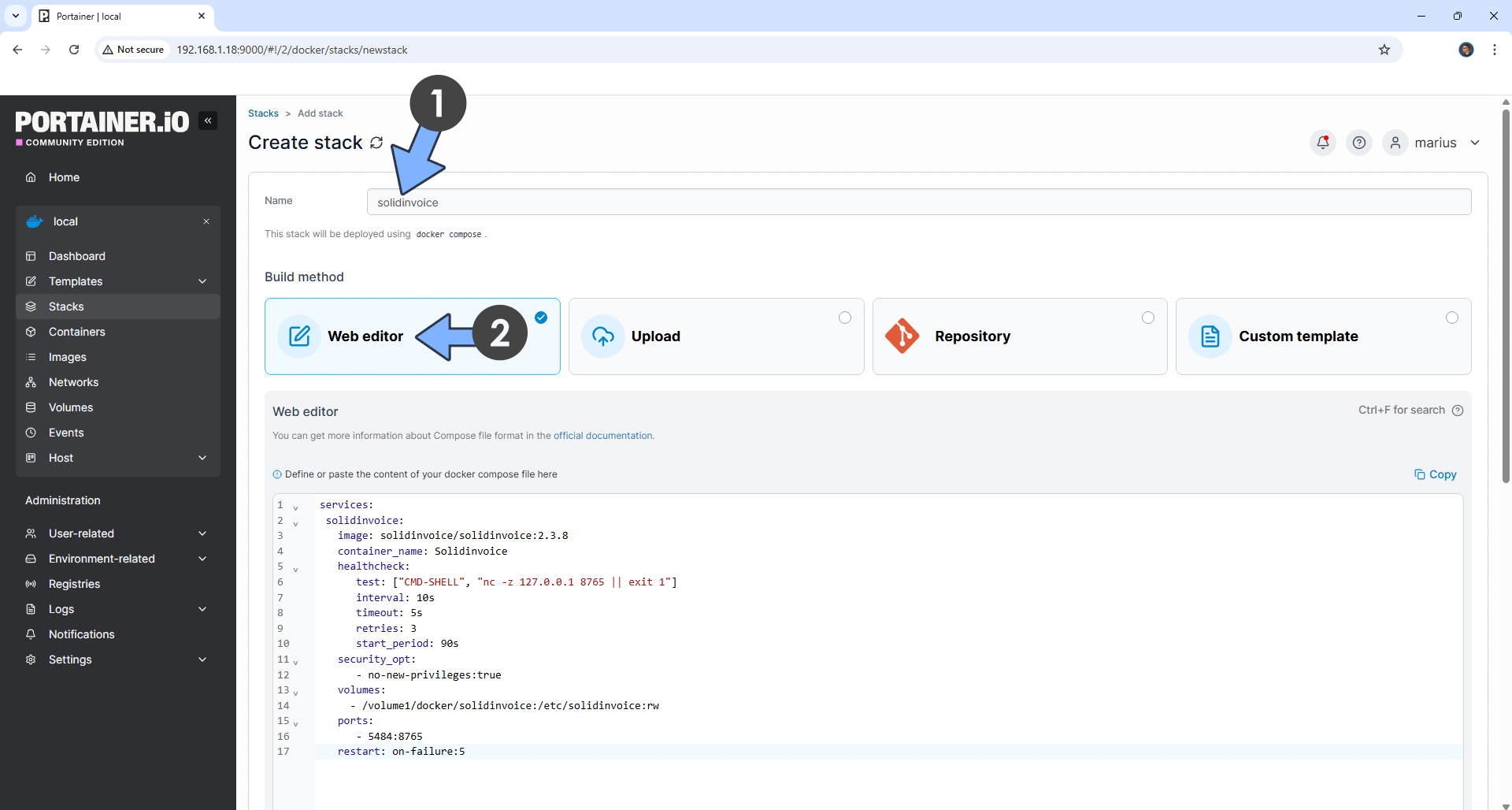
STEP 13
Scroll down on the page until you see a button named Deploy the stack. Click on it. Follow the instructions in the image below. The installation process can take up to a few minutes. It will depend on your Internet speed connection.
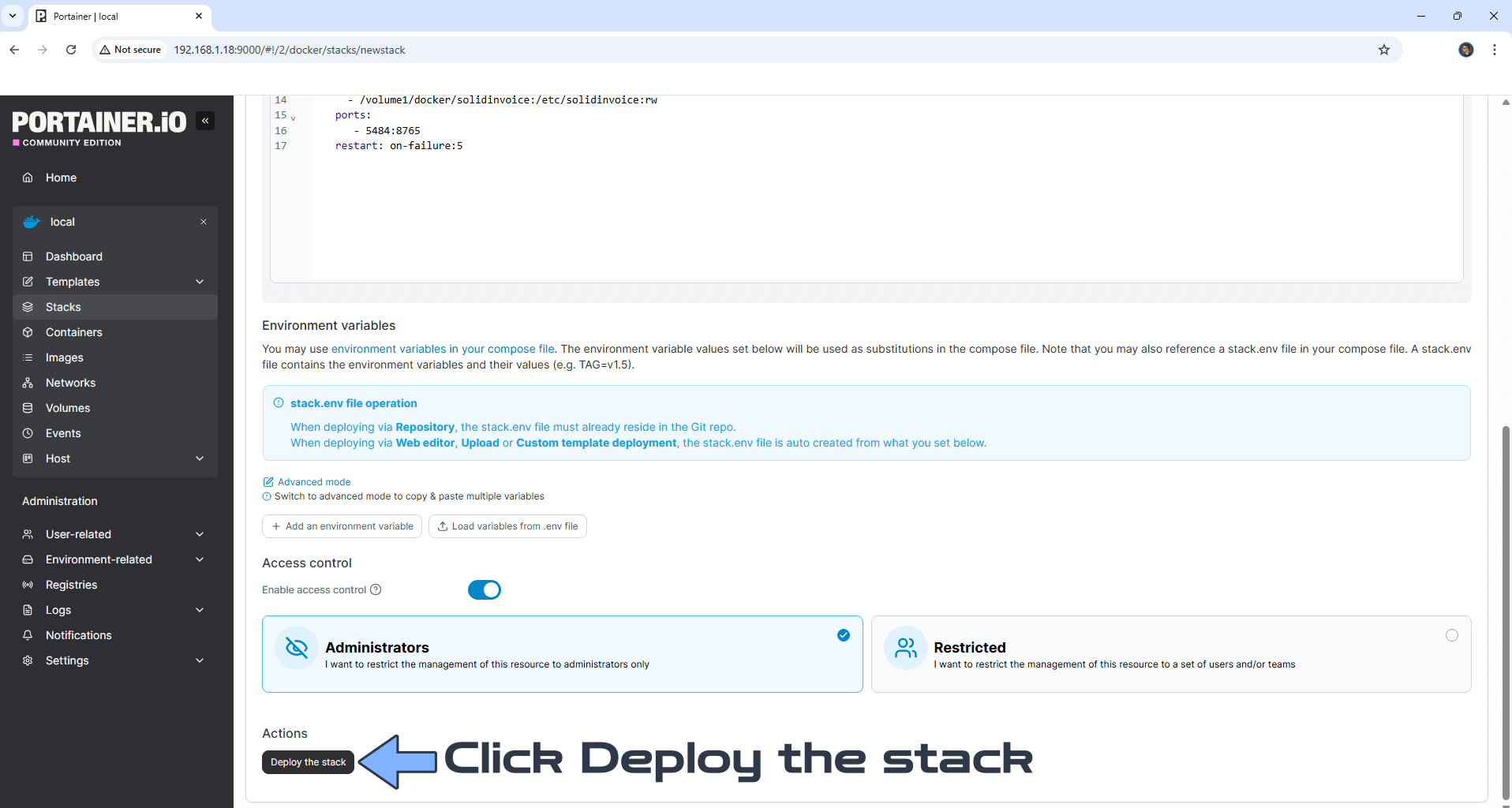
STEP 14
If everything goes right, you will see the following message at the top right of your screen: “Success Stack successfully deployed“.

STEP 15
🟢Please Support My work by Making a Donation. Almost 99,9% of the people that install something using my guides forget to support my work, or just ignore STEP 1. I’ve been very honest about this aspect of my work since the beginning: I don’t run any ADS, I don’t require subscriptions, paid or otherwise, I don’t collect IPs, emails, and I don’t have any referral links from Amazon or other merchants. I also don’t have any POP-UPs or COOKIES. I have repeatedly been told over the years how much I have contributed to the community. It’s something I love doing and have been honest about my passion since the beginning. But I also Need The Community to Support me Back to be able to continue doing this work.
STEP 16
Now open your browser and type in your HTTPS/SSL certificate like this https://solidinvoice.yourname.synology.me In my case it’s https://solidinvoice.mariushosting.synology.me If everything goes right, you will see the Solidinvoice setup page. From the Database type list, select Embedded Database (SQLite). Click Next. Follow the instructions in the image below.
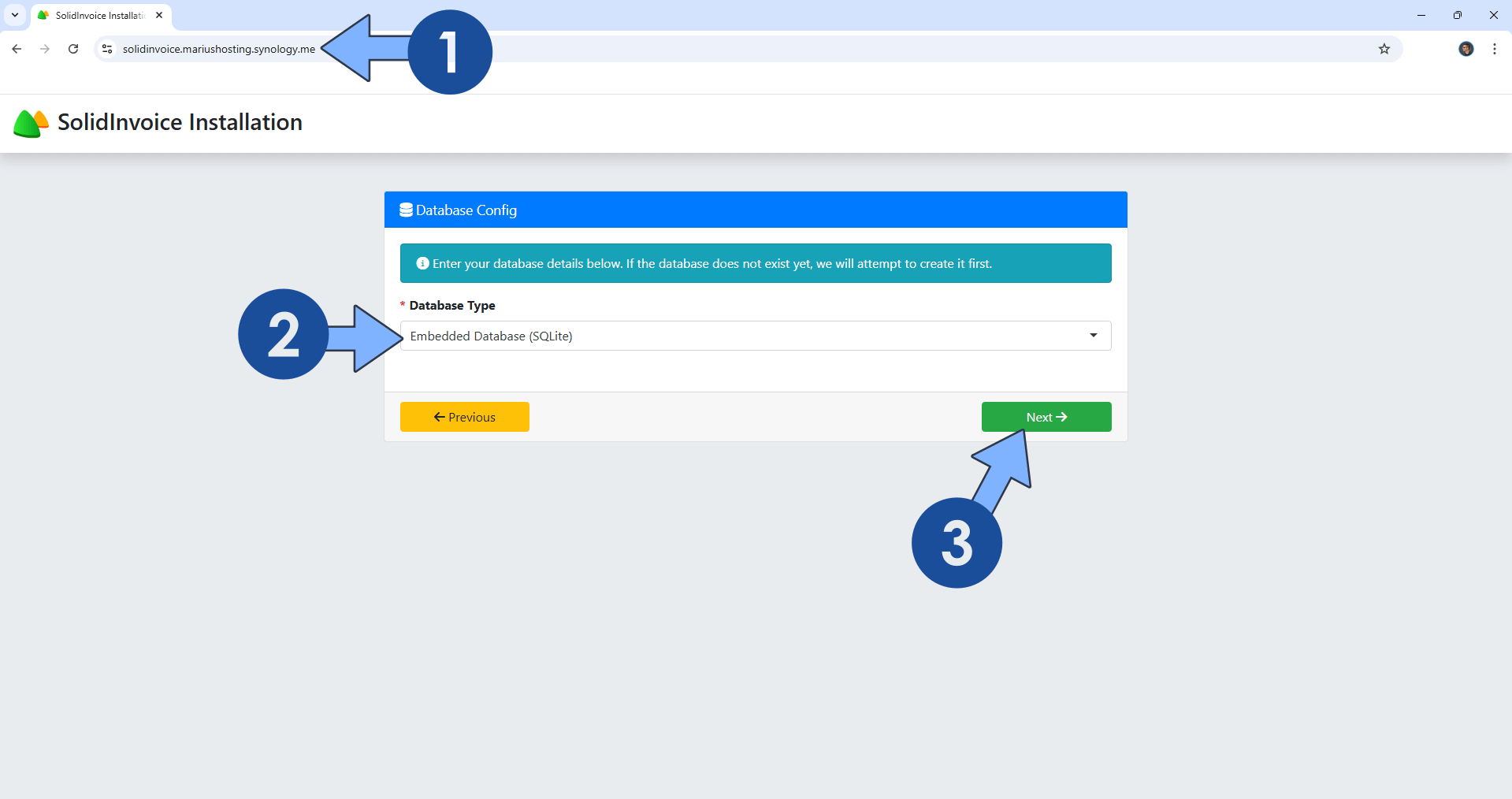
STEP 17
Click Next. Follow the instructions in the image below.
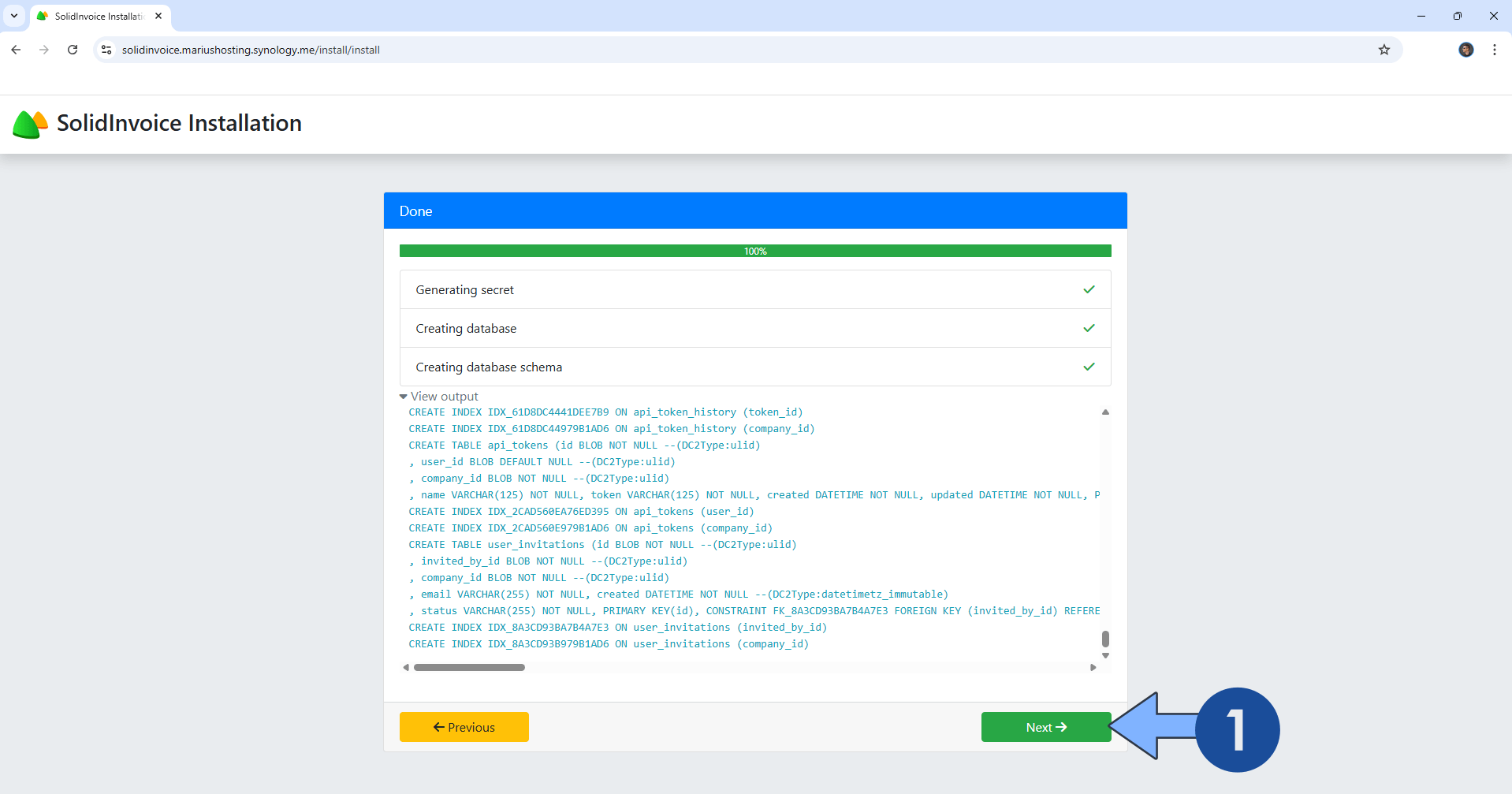
STEP 18
Choose the System Language. Add your own Admin Credentials, then click Next. Follow the instructions in the image below.
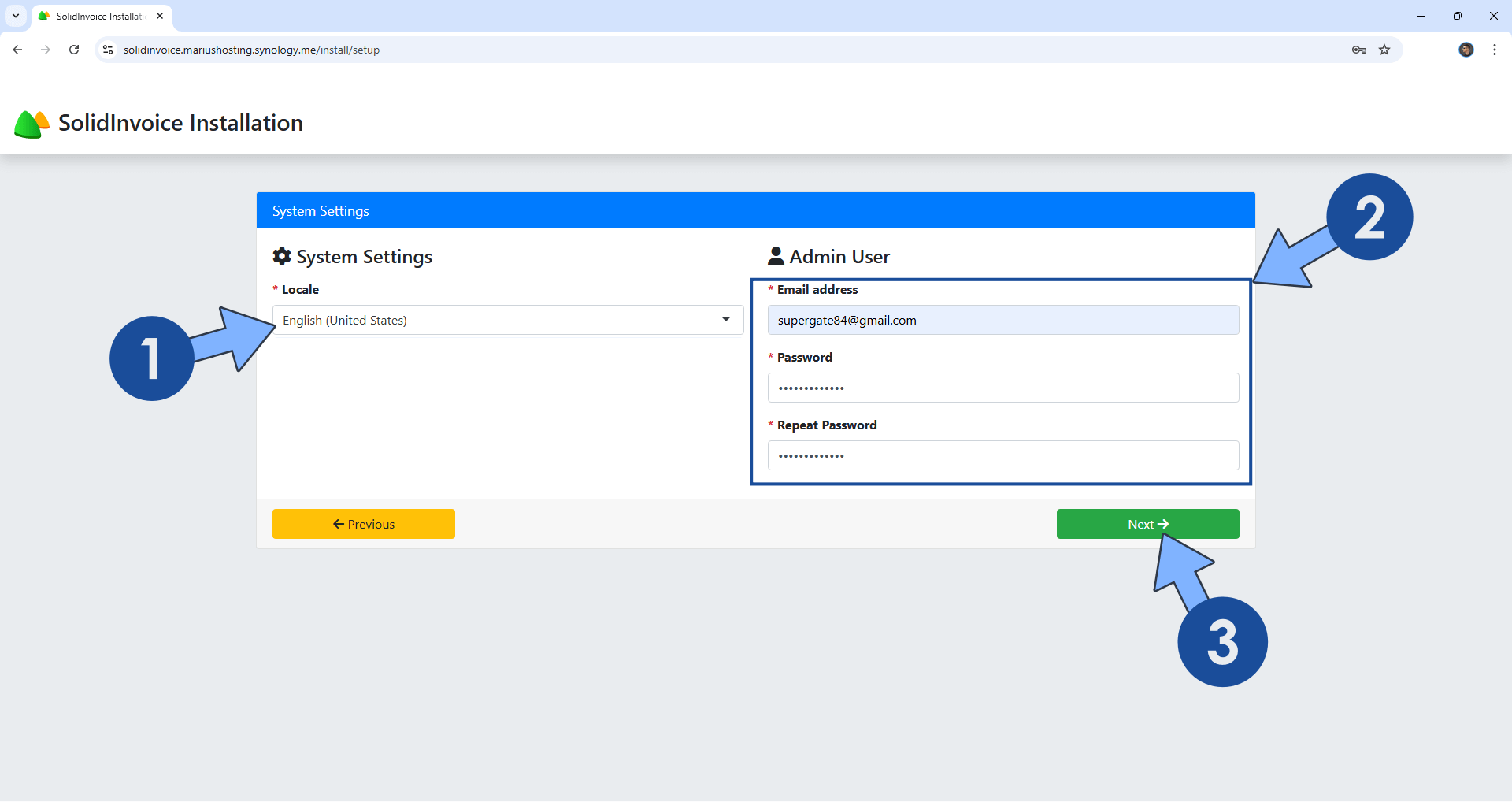
STEP 19
Click Log In Now. Follow the instructions in the image below.
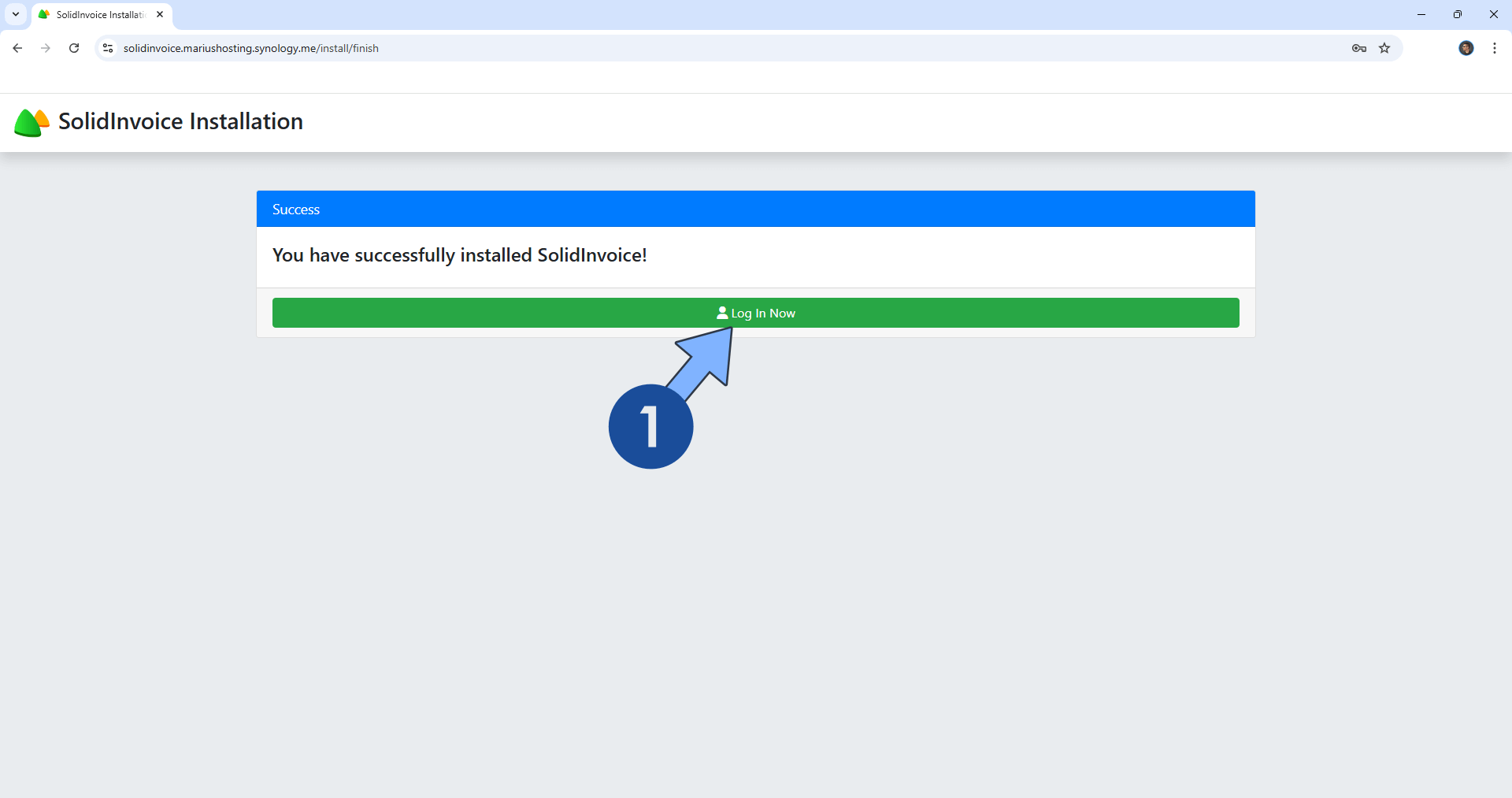
STEP 20
Type in your own Admin Credentials that you have previously created at STEP 18, then click Login. Follow the instructions in the image below.
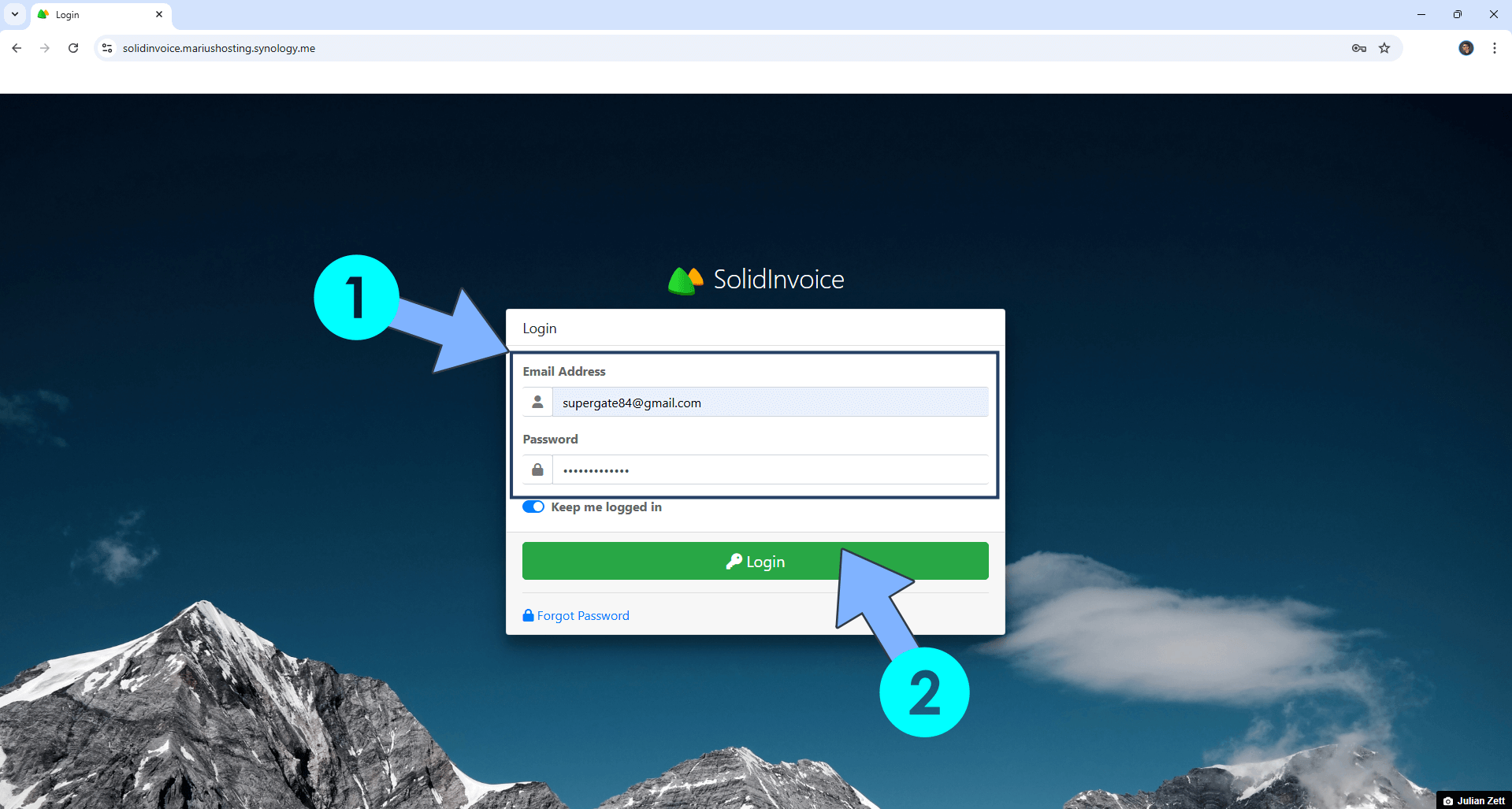
STEP 21
Add your Company Name, then select a Currency. Click Create. Follow the instructions in the image below.
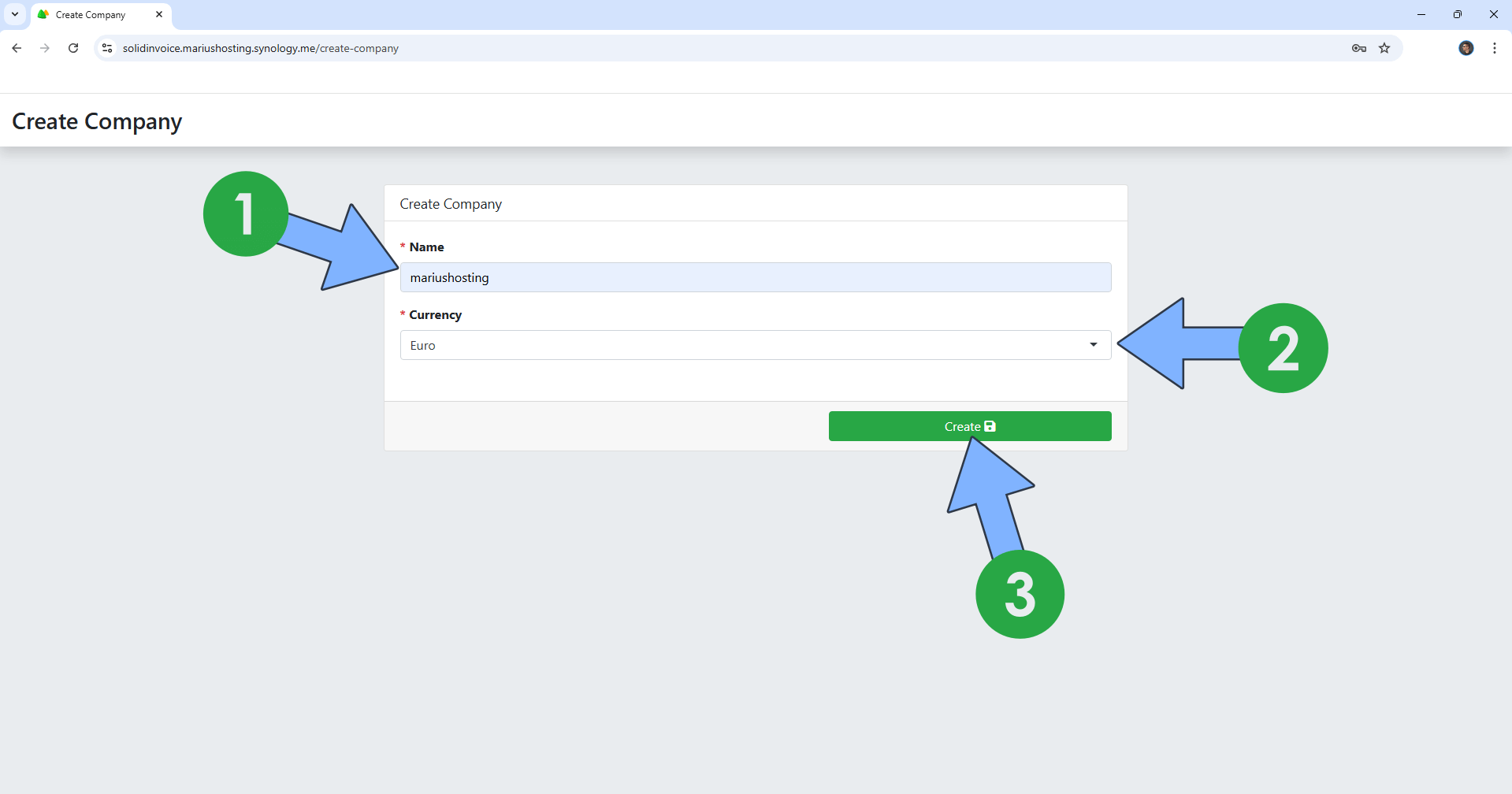
STEP 22
Your Solidinvoice Dashboard at a glance!
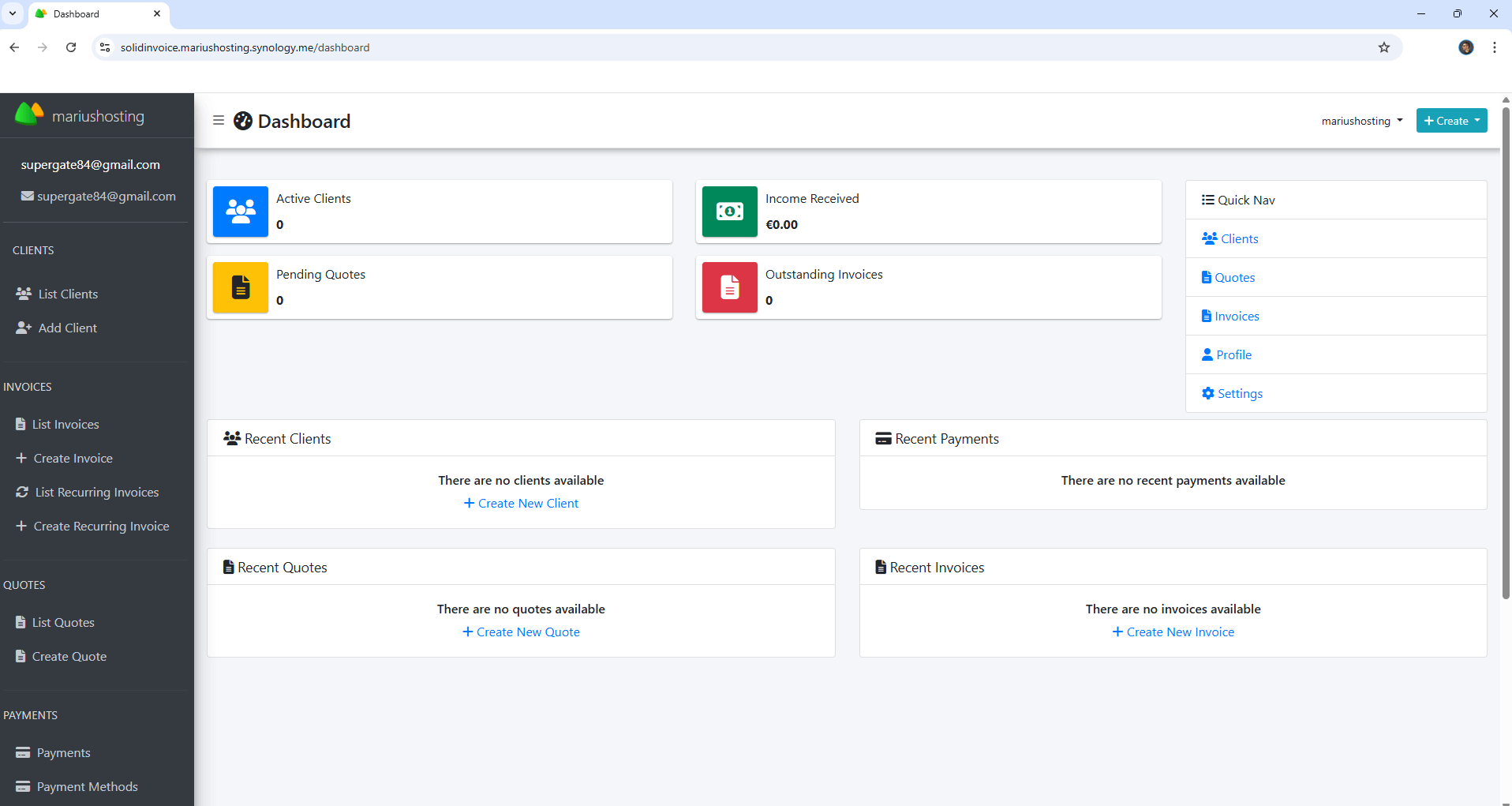
STEP 23
Set Up Email Notifications on Solidinvoice.
Enjoy Solidinvoice!
If you encounter issues by using this container, make sure to check out the Common Docker issues article.
Note: Find out how to update the Solidinvoice container with the latest image.
Note: How to Back Up Docker Containers on your Synology NAS.
Note: Can I run Docker on my Synology NAS? See the supported models.
Note: How to Free Disk Space on Your NAS if You Run Docker.
Note: How to Schedule Start & Stop For Docker Containers.
Note: How to Activate Email Notifications.
Note: How to Add Access Control Profile on Your NAS.
Note: How to Change Docker Containers Restart Policy.
Note: How to Use Docker Containers With VPN.
Note: Convert Docker Run Into Docker Compose.
Note: How to Clean Docker.
Note: How to Clean Docker Automatically.
Note: Best Practices When Using Docker and DDNS.
Note: Some Docker Containers Need WebSocket.
Note: Find out the Best NAS Models For Docker.
Note: Activate Gmail SMTP For Docker Containers.
This post was updated on Friday / January 23rd, 2026 at 3:23 PM
